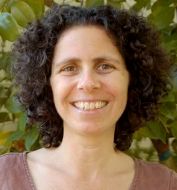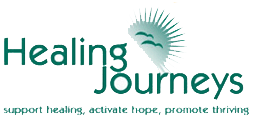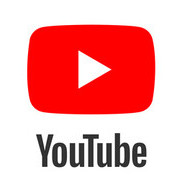by Inbal Kashtan
 While I was visiting my mother in New York in the summer of 1978, my father called me from our home in Tel Aviv. Strangely, both of us were having a sensation of pressure in our throats and difficulty swallowing. My parents had separated in 1976, when I was 11; my mom left Israel when I was 12. I thought that my father, like me, was suffering from anxiety and depression.
While I was visiting my mother in New York in the summer of 1978, my father called me from our home in Tel Aviv. Strangely, both of us were having a sensation of pressure in our throats and difficulty swallowing. My parents had separated in 1976, when I was 11; my mom left Israel when I was 12. I thought that my father, like me, was suffering from anxiety and depression.
Many months later, we learned the cause of his symptoms: throat cancer. My father and I were not close. I didn’t think I loved him; I didn’t trust that he loved me. I was scared and excruciatingly lonely through his cancer. He spent two months in the hospital receiving chemotherapy and radiation while I lived alone. Then when his treatments failed, he tried surgery. Nobody told him that the surgery, too, had failed; denying death was the norm then, the kind thing to do.
After he came home from the hospital, a nurse moved into my bedroom and I moved in with my 28-year-old sister—a life-saving move. Even though I dreaded it, I visited my father about twice a week. He was always in bed, semi-conscious, in terrible pain. He couldn’t swallow so he would spit every few minutes, then look at himself in a hand mirror, examining the rotting flesh of his neck. Then he would gather his strength to write questions for me on a pad of paper, while I averted my gaze: my father, the man of words, could no longer speak. I was terrified that he would die while I was alone with him, mortified by his suffering, but I kept visiting him, and I answered his questions. Not from love, I thought, but from pity and obligation.
I was 14 when my father died. He was 59. I thought he was way too young to die, but here I am, at 46, walking in the valley of the shadow of death, in the words of the beautiful psalm. Cancer made its way to me four years ago, and it has stubbornly held on.
Between 14 and 42, I healed much of the pain of my childhood. Yet cancer, along with all its horrors, has also quickened the pace of my healing and deepened my relationship with my father. The impact of my cancer and possible death on my son, who was 9 when I was diagnosed, was my greatest pain, the grief for which I found no solace. Memories of sitting by my father, witnessing his deterioration, kept coming back to me: his utter misery; him unable to speak to me; me so resistant to speaking to him. Only now I knew, in a way that I could not have known as a child, that my father was likely grieving a similar grief to mine now. I could sense his love for me, his fierce longing to protect me from what no one can be protected from. And my deep love for him has re-emerged from the recesses of my broken heart.
Aside from our both having cancer, my father’s journey and mine are different in every way. I am rich in love, companionship, support, and resources, where he was devastatingly lonely. I have worked hard to heal, to love and accept myself as I am, as much as I can, where he was bitterly disappointed in himself and his life. He loved me yet didn’t know how to connect with me. My son, now 13, and I are family, friends, and mutual mentors. We can talk about anything, even cancer. It’s how our family has lived since he was born: everyone matters equally—my wife, myself, our son; we respect everyone’s autonomy and self-knowledge, trust everyone’s intentions, always aim to understand and connect.
Over a year ago, after we got some particularly sad news about my health, I asked my son how he was doing. He said he was sad but okay. I persisted, gently—was he worried? “Ima [mother],” he reminded me, equally gently, “I’m not a worrier.”
“So what do you do instead of worrying?” I asked.
“When there is bad news, I’m sad. And then, as long as there are things to try, I’m hopeful again. It’s not an expectation, I just hold the hope lightly.”
I have learned so much from my son; this lesson has been especially powerful. I used to be afraid to hope, terrified of disappointment. Dashed hopes produced a sense of humiliation, like “I should have known better.” Witnessing my son’s example—his authentic capacity to live fully in the face of uncertainty by being open to both hope (held lightly) and sorrow—helped me form a vision of what’s possible for me.
Slowly, I have learned to let myself hope. I let myself hope for things that are likely, and even for things that are unlikely. Just a few days ago, I got some bad news again. Hopes dashed—yes. But no humiliation. It’s odd to remember that I used to feel humiliated about hoping—now I find such beauty in hope, such strength. So we—my family, our community—are grieving together, pouring out our love to one another, and yes, hoping together. Along with others, I have my son to thank for this gift of hope.
Bio: Inbal Kashtan, who lives in Oakland, California, is co-founder of Bay Area Nonviolent Communication and author of Parenting from Your Heart: Sharing the Gifts of Compassion, Connection, and Choice, and a CD, Connected Parenting.
B.C. (Before Cancer), she taught, wrote, and inspired people about creating a world where everyone matters and people have the skills for making peace. Now she heals, loves, tells stories, and tries to live her dreams for as long as she can. Her family is an ongoing dream come true.


